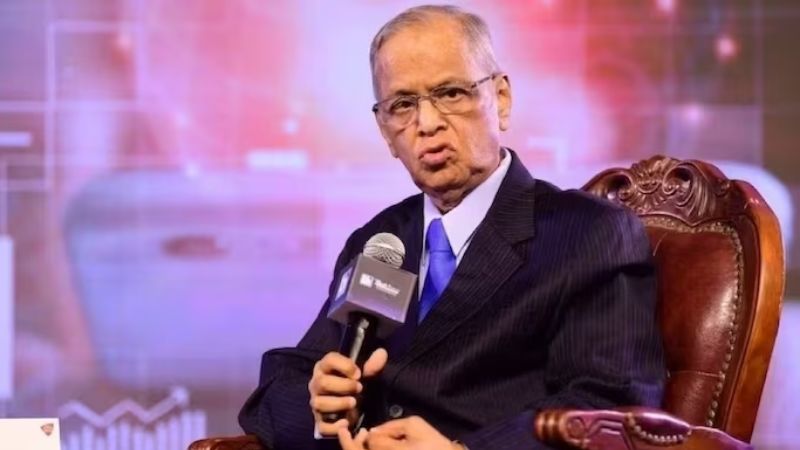Receiving flaks for his vocal six-day workweek call, Former Infosys co-founder N Narayana Murthy has reiterated that hard work is more important than work-life balance. While addressing a function in New Delhi, Murthy (78) added, “I do not believe in work-life balance.”
Murthy also expressed disappointment over India’s move from a six-day workweek to a five-day one in 1986, a change he says he never agreed with. To emphasise his firm stance on this move, he stressed, “I am sorry, I have not changed my view. I will take this with me to my grave.” The billionaire businessman added that the country needs people to work for more hours in order to take it to further heights.
His view that hard work is more important than work-life balance has generated social media opprobrium recently.
The Infosys co-founder further said that the country’s progress hinged on encouraging a culture of hard work.
He opined that working hard is essential to achieve national progress, pointing to Prime Minister Narendra Modi as a model of tireless dedication.
“When PM Modi is working that hard, the only way to show our appreciation for what’s happening around us is by working just as hard,” he said, adding that without a strong work ethic, the country will struggle to keep up with global competitors.
“There is no substitute for hard work,” he emphasized, making his perspective on work-life balance clear.
Sharing insights from his own career, Murthy talked about how he has lived by the values close to his heart.
His routine, Murthy said, involved starting at the office by 6:30 a.m. and leaving only around 8:40 p.m., a commitment he takes pride in.
For him, hard work is not just a personal choice; it’s a responsibility for those fortunate enough to have received an education, often subsidised in India.
“I’m proud of it,” he remarked, highlighting that dedication to work is an integral part of Indian culture and a duty for those with opportunities.
Interestingly, his comments come amid continued debate over his previous suggestion that millennials in India should aim for a 70-hour workweek. The controversial suggestion had sparked mixed reactions, with some agreeing on the need for a stronger work ethic while others criticized the idea as excessive.
“In this country, we need to work hard. There is no substitute for hard work even if you are the most intelligent guy,” he said.
According to Murthy, countries like Germany and Japan set a precedent for what a nation can achieve with a focused and determined workforce.
He strongly believes that young Indians have a similar responsibility to work hard and contribute to India’s growth in a competitive global landscape.
